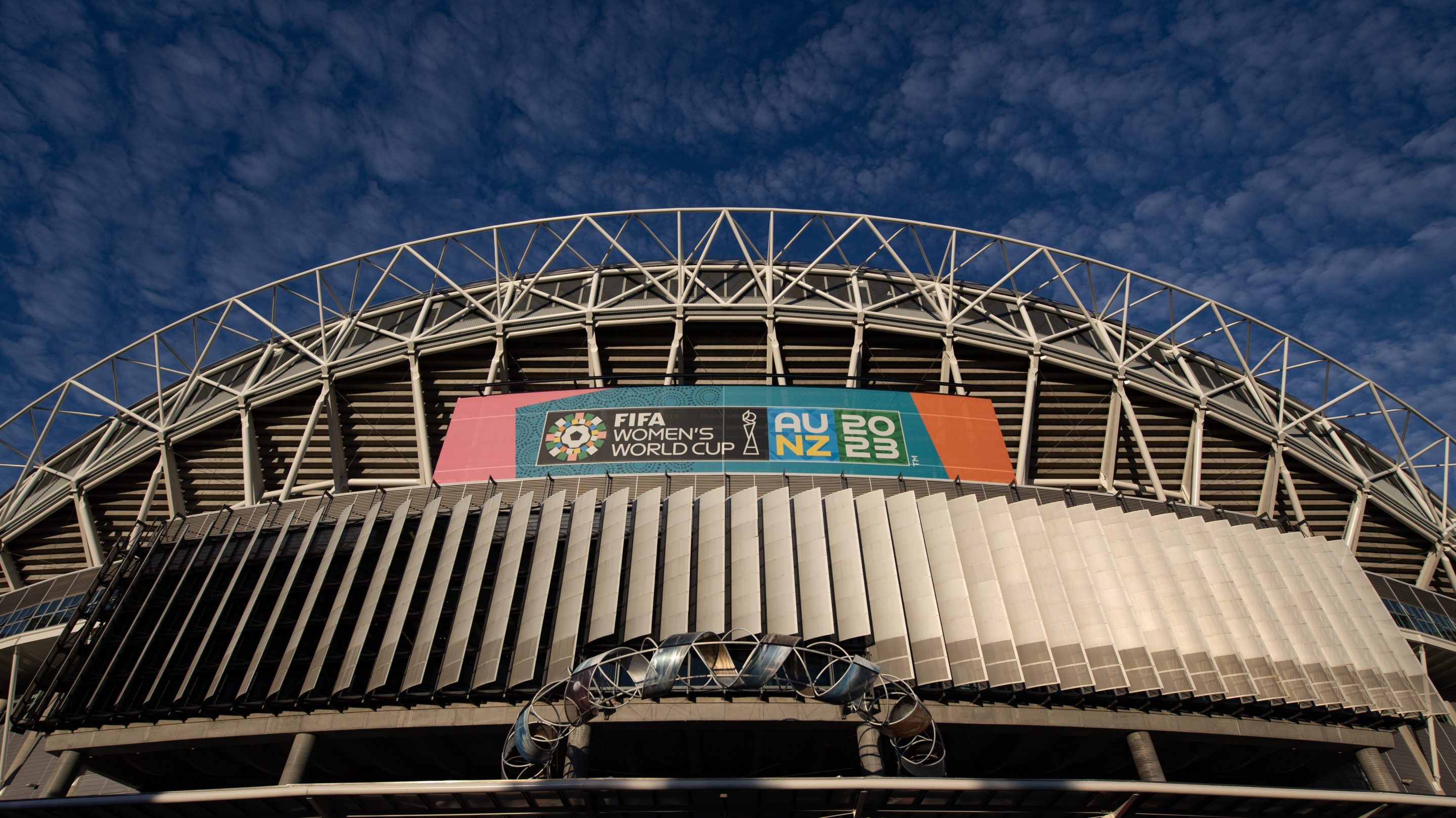In my childhood, the official language of soccer was Spanish. Watching soccer meant turning on the TV and flipping over to the Spanish-language stations. If you were lucky, Andrés Cantor had the call. If you were less lucky, you still probably got an amazing announcer. I did not, and still do not, speak Spanish fluently, but not knowing all the words didn't bother me. Necessity will do that, take an obstacle and make it obsolete.
Some of this can be attributed to growing up in South Florida where either Univision or Telemundo played (and still does) in most homes, Spanish-language radio dominated the politics (and still does), and one of my best friend's dads—who is from Uruguay, which has won two World Cups and is nearly always still competitive in them—would ask me when I hung out at their house, "What is the deal with this baseball sport and why would anyone watch that when they could watch the beautiful game?" In the South Florida of the 1980s, 1990s and into the 2000s, Pelé was the father (even though he had retired), Maradona was the son, and Brazil's Ronaldo was the holy ghost. These were truths, like afternoon thunderstorms and AOL dial-up. In my tiny corner of the universe, Latin American soccer was the soccer. Of course we all watched it in Spanish.
Even if you wanted to watch soccer in English, you could not. Premier League games weren't on U.S. TV until the 1990s and they didn't make their way onto ESPN until 1996. Even then, the games weren't live and this setup excluded everyone who didn't have cable. MLS held its inaugural season in 1996, and the NASL folded in mid-1980s. Outside of the World Cup, watching live soccer meant watching a Spanish-language broadcast. I never thought about if I would grasp more if the games were broadcast in my native language; it simply was not an option.
So my brain recognized the pattern—soccer = Spanish—and ran with it. It has stuck with it, even as the United States has caught up on soccer and more English-language broadcasts became available. And now I am asking you to join me. Please, watch this women's World Cup in Spanish.
It is true that, if you aren't fluent or at least proficient in a language, you will miss a lot during a broadcast. Explanations of tactics. Personal storylines. Cheeky banter. And yet, seeing the volume of complaints about broadcasters for NBA, NFL, MLB, MLS and on and on, perhaps knowing everything the announcers are saying isn't always preferable. Just look at the Fox post-match broadcast after the U.S. Women's National Team drew with Portugal 0-0.
"There's a difference between being respectful of the fans and saying hello to your family, but to be dancing and smiling..."@CarliLloyd on the USWNT after the match 🇺🇸 pic.twitter.com/38zm1eC76r
— FOX Soccer (@FOXSoccer) August 1, 2023
Lloyd was given a chance to clarify, and she doubled down with vague references to "post-2020" and "off-the-field things," all while a giant U.S. flag waved in the background.
Carli Lloyd sounds off on the USWNT following a disappointing draw vs. Portugal 👀
— The Sporting News (@sportingnews) August 1, 2023
🎥 @FOXSoccer pic.twitter.com/P7zFiAfYsb
Why subject yourself to this? Sometimes in life we don't have options, but here we do. Instead of listening to Lloyd and Lalas smuggle their personal grievances into game analysis, you can just turn on one of the Spanish channels and let the pleasant sounds of a language you're not familiar with wash over you as you wait for the next game to start. And if you are fluent in Spanish, you're going to get a better product, anyway. Before last year's World Cup began, Telemundo aired a package leading up to the Qatar games addressing the corruption, the bribes, the country's anti-LGBTQ policies, and the deaths of migrant workers who built the World Cup stadiums. Fox said nothing.
I understand the desire to watch a sport in your native tongue. There's the comfort of knowing the words instantly. Coming up against a new language always requires that hurdle of humiliation and frustration. It just feels bad, not knowing the words, like a personal failure.
Except if you can get past that hurdle, you actually will learn another language. OK, watching this World Cup in Spanish won't make you fluent (I'm a prime example of this!). It does take more work than that. But anyone who has taken a few language classes knows the old advice: try watching TV in the language to help you learn. You hear the word, you see the physical item or action to which it refers, your brain makes connections. The TV show Friends has taught countless people English. How great will it be to learn a little Spanish! You will use this in life going forward!
In the meantime, you will also experience the sport in a way that makes the beautiful game, well, more beautiful, especially in a competition that is sometimes anything but. World Cup soccer is, in terms of quality of play, a bit uneven. The teams play together sporadically, club enemies become friends (and vice versa) under the banner of country. World Cup soccer, perhaps more than any other soccer, really is about heart and feelings and emotions. Our love of World Cup soccer isn't logical, which only makes it more beautiful.
Is there anything in soccer more beautiful than an Andrés Cantor call of gooooooooooooooooooooool? Cantor is the voice of soccer in the United States. His calls are the stuff of legend. He appeared on The Late Show with David Letterman all the way back in 1994. He nearly fainted after Landon Donovan's last-minute goal in 2010. He's been profiled everywhere. He has been on The Simpsons. He is as much a part of the fabric of U.S. soccer as the legendary players themselves. Not listening to Cantor because you don't know Spanish is like saying you passed up the chance to see the acclaimed operatic tenor Pavarotti because you didn't know Italian. You have the chance to listen to one of the greatest soccer announcers in history, or you can listen to some folks who might be nice but are not Cantor.
His popularity, and his ubiquity with U.S. soccer, speaks to how little language barriers matter in the biggest moments on the grandest stages. I pray in Hebrew not because I understand every word but because it is the language in which my people have prayed for thousands of years. It connects me to something larger than myself. To watch soccer in Spanish, for me, is to once again connect to something bigger than myself, an entire way of watching and viewing and understanding and loving soccer. It's OK if you don't know all the words. The heart speaks all the languages.






